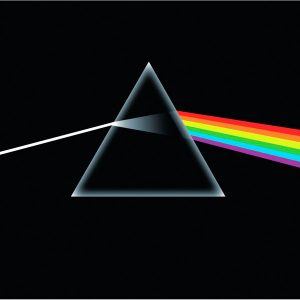| Born: Genre: Style: |
1965 – London, United Kingdom Rock Prog Rock, Psychedelic Rock |
| Year | Album Title | Label | In House |
|---|---|---|---|
| 1967 | The Piper at the Gates of Dawn | Columbia | No |
| 1968 | A Saucerful of Secrets | Columbia | No |
| 1969 | More (OST) | Columbia | No |
| 1969 | Ummagumma | Harvest | YES |
| 1970 | Atom Heart Mother | Harvest | No |
| 1971 | Live In Rotterdam | MAF | YES |
| 1971 | Meddle | Harvest | No |
| 1972 | Obscured by Clouds | Harvest | No |
| 1973 | The Dark Side of the Moon | Harvest | On Website |
| 1973 | A Nice Pair | Harvest | YES |
| 1975 | Wish You Were Here | Harvest | On Website |
| 1977 | Animals | Harvest | No |
| 1979 | The Wall | Harvest | YES |
| 1983 | The Final Cut | Harvest | No |
| 1987 | A Momentary Lapse of Reason | EMI | No |
| 1988 | Delicate Sound Of Thunder | EMI | No |
| 1994 | The Division Bell | EMI | No |
| 2014 | The Endless River | Parlephone | No |
Pink Floyd is a symphonic rock band from England that released a classic in late 1979 with "Another Brick in the Wall (Part 2)." Pink Floyd is primarily an "album band," with no fewer than ten albums reaching the top 10. The Dark Side of the Moon (1973) is one of the best-selling albums in music history.
The story of Pink Floyd begins at a London school where Roger Waters, Richard Wright, and Nick Mason were studying architecture and shared a passion for music. The boys decided to form a band with three others (Clive Metcalf, Juliette Gale, and Keith Noble). The name changed from Sigma 6 to The T-Set to The Screaming Abdabs. In 1964, Metcalf, Noble, and Gale left the band, and guitarist Bob Close and guitarist/vocalist Roger "Syd" Barrett joined.
The repertoire at that time consisted of rhythm and blues, with Bo Diddley as a major source of inspiration. The band's name became Pink Floyd, a combination of the first names of two old blues heroes, Pink Anderson and Floyd Council.

Dark Side On The Moon
Syd Barrett was the band's defining figure and driving force in the early days. He wrote visionary, surreal lyrics like the two early hit singles "Arnold Layne" and "See Emily Play," and the material for their debut LP, The Piper at the Gates of Dawn. Syd's excessive drug use had a profound influence on the music, making Pink Floyd the first psychedelic rock group.
Gilmour
But his drug problems led to major problems within the group. He left Pink Floyd in 1968 and was replaced by David Gilmour. After Syd, the creative leadership role was eventually taken over by Roger Waters, who further expanded their psychedelic rock roots. Pink Floyd subsequently released the following albums: the film soundtrack "More" (1969), "Ummagumma" (1969), and "Atom Heart Mother" (1970).
By 1970, Pink Floyd was a true supergroup, boasting millions of copies and sold-out tours featuring spectacular light shows. Their peak came with the album The Dark Side of the Moon (1973), the most successful Floyd album in the group's history and one of the best-selling rock albums of all time.

Animals
The follow-up, Wish You Were Here, arrived in 1975, followed by the album Animals, partly inspired by George Orwell's book Animal Farm. Despite Pink Floyd's success, the group members also pursued solo projects, releasing albums by Gilmour, Wright, and Mason. Meanwhile, Roger Waters was working on the concept album The Wall, from which the single "Another Brick In The Wall" became a huge hit worldwide. In the 1980s and 1981, the group toured the world with its spectacular Wall show. A towering wall used as a stage backdrop, featuring numerous special effects, made the show impossible to see in the Netherlands; no concert hall was big enough.
After this enormously successful period, things went downhill for the band. Singer-guitarist-bandleader Roger Waters and the rest of the group became estranged, and by the time of the recording of The Final Cut, the signs of a rift were visible. Roger Waters left the band shortly after the album's release, after which the group more or less disbanded. In 1984, Waters recorded a moderately successful solo album, The Pros and Cons of Hitch Hiking. Waters followed up with, among other tracks, the cartoon soundtrack When the Wind Blows (1986). Gilmore focused on session work for artists such as Bryan Ferry, Supertramp, and Joan Armatrading.
In the autumn of 1986, it was announced that Gilmour, Wright, and Mason would be performing again as Pink Floyd. Waters filed a lawsuit against his former bandmates to prevent this reunion. But his protest was ineffective, as the album A Momentary Lapse of Reason was released in 1987, without Roger Waters. The subsequent tour would go down in history as one of the most impressive live performances of all time.

The Wall
But Roger Waters wasn't sitting idle either. After the Berlin Wall fell before the eyes of the world, Waters decided the time was ripe for a revival of The Wall. He devised a show featuring a gigantic Styrofoam wall, broadcast live worldwide via satellite in July 1990. Artists like Van Morrison, Sinéad O'Connor, Joni Mitchell, and Marianne Faithfull also participated, but despite all his efforts, the show didn't achieve the success Waters hoped for and subsequently retaliated with the album Amused To Death (1992).
In 1993, Pink Floyd members released another album, The Division Bell, which again achieved platinum status. The band continued to tour stadiums, culminating in the live double CD PULSE (1995). After this, the Pink Floyd story seemed to be over for good, as Waters and Gilmour both pursued their solo careers.
The double album and compilation album Echoes hit stores in 2002. In 2005, the band reunited for a special occasion: Live 8. The series of benefit concerts organized by Bob Geldof to raise awareness of poverty in Africa inspired Pink Floyd to share a stage together again.
In 2008, keyboardist Richard Wright died of cancer. A surprise performance followed in 2011: Gilmour and Mason joined Waters on stage at The Wall concert in London, perhaps the last Pink Floyd reunion.
In the summer of 2014, it was announced that in addition to a re-release of The Division Bell, a new album would also be released: The Endless River, the band's first release in over twenty years, is presented as an ode to Richard Wright.